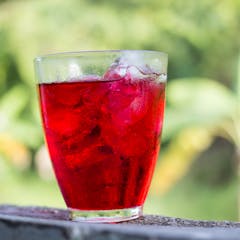
Artículos sobre Food and nutrition
Mostrando 1 - 20 de 219 artículos

Does weight come back when you stop taking drugs like Ozempic? Are these medications simply another (expensive) form of yo-yo dieting? Here’s what we know so far.

We don’t tell people taking statins to treat high cholesterol or drugs to manage high blood pressure they’re cheating or taking the easy way out. Nor should we when people take drugs like Ozempic.

Many have declared drugs like Ozempic could ‘end obesity’. This isn’t just untrue – it also perpetuates fat stigma.

We all want to eat healthily, especially as we reset our health goals at the start of a new year. But sometimes these plans are sabotaged by powerful cravings for sweet, salty or carb-heavy foods.

Western Australia has introduced a limit on ham in school canteens. Here’s what has changed and the evidence it’s based on.

Don’t believe the hype about products claiming they can help you live longer. Here are five lifestyle changes to prioritise instead.

Many of us gain weight over Christmas and spend more than we’d like entertaining. Here’s how to keep both in check.

When we change our diet, we disrupt our appetite hormones. Here’s how it works – and how small changes to our diet can help us feel fuller for longer.

Kian, age 6, has some interesting questions about farts that we’re probably all wondering about.

A healthy diet in line with the Australian Dietary Guidelines is cheaper than an unhealthy diet. Switching could save $160 off a family of four’s fortnightly shopping bill.

Ads for targeted fat loss, especially
for belly fat, are everywhere on social media. But is there any evidence to support this type of ‘spot reduction’?

Eating too much salt is bad for our health. Governments and food manufacturers have a big role to play in reducing the salt content of Australians’ diets.

Fish oil has been promised to provide all sorts of health benefits – from boosting our heart health, protecting our brain and easing arthritis. Here’s how the claims stack up for fish and supplements.

A new review shows consuming cranberry products reduces the chance of repeat UTIs for women, children, and those who are more susceptible to them due to medical procedures.

Australia’s food labelling system is under-performing. Here’s how we can make it more effective.

Chewing can impact brain function, stress, anxiety, exam performance, pain perception, as well as hunger and food intake.

People who don’t drink milk can choose other foods to get the calcium, protein, vitamins and minerals their bodies need.

New research dispels the myth that gut bacteria causes autism. Rather, changes in the gut bacteria of some people with autism are driven by restricted diets or ‘picky eating’.

Unhealthy foods are readily available and heavily marketed to us, especially at supermarkets.

A research project may offer insight into how factors like laundry, food and art may be good places to start in addressing problems in long-term care homes.
